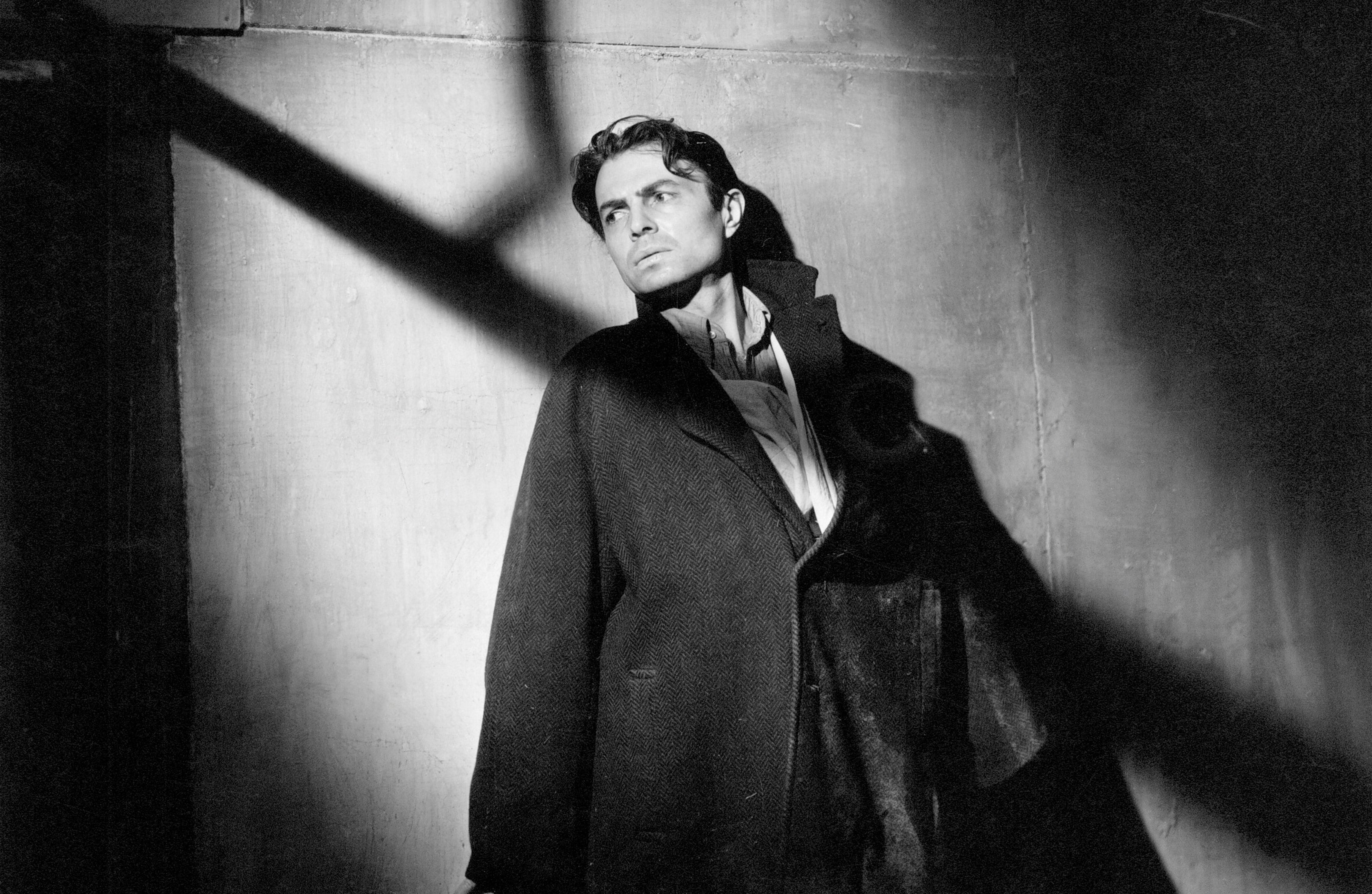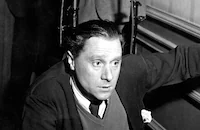Odd Man Out

Brief Synopsis
Cast & Crew
Carol Reed
James Mason
Robert Newton
Kathleen Ryan
Robert Beatty
F. J. Mccormick
Film Details
Technical Specs
Synopsis
In the aftermath of a botched hold-up, intended to finance the activities of his IRA cell, a wounded Johnny McQueen takes shelter in the back-alleys of Belfast, a shadowy underworld where sanctuary is freighted at every moment with peril. Meanwhile, a vast police manhunt is launched--a net that closes steadily, remorselessly in upon him.
Director

Carol Reed
Cast

James Mason

Robert Newton

Kathleen Ryan

Robert Beatty
F. J. Mccormick

Fay Compton
Beryl Measor

Cyril Cusack

Dan O'herlihy
Maureen Delany
Kitty Kirwan
Arthur Hambling

Denis O'dea
Elwyn Brook Jones
W G Fay

William Hartnell
Joseph Tomelty
Photo Collections
Videos
Movie Clip



Hosted Intro
Film Details
Technical Specs
Award Nominations
Best Editing
Articles
Odd Man Out
Mason plays Johnny McQueen, an I.R.A. leader who escapes from jail, only to be badly wounded during an attempted robbery in Belfast. Left behind at the scene of the robbery, Mason drags himself through the slums, bleeding and slowly becoming more disoriented. As he makes his way along the streets, he encounters a series of strangers who alternate between trying to help him and turning him over to the police. These encounters grow increasingly bizarre as McQueen learns harrowing lessons about human nature, and is forced to reconsider his own presumptions about simple survival.
Reed, who optioned F.L. Green's Odd Man Out in 1945, felt that there was a shortage of talented screenwriters in England, so he insisted that Green himself should adapt the book for the screen. Green was flattered by the suggestion, but had never written a script before, and was leery of flying solo with so much at stake. Acting against his own instincts, Reed then hired R.C. Sherriff to more or less keep the project on track while Green got his bearings. Reed also tinkered with the script himself, but that was to be expected, since he had a hand in virtually every aspect of his productions. This tendency to spread his talents around was one of the reasons Reed, who could have used the financial support of a major studio, long resisted working on the Hollywood assembly line.
Reed's European investors, not surprisingly, were concerned with making movies that would appeal to American as well as British audiences. Reed, however, felt that British filmmakers should stick to the sort of material that they knew best. Although the politics of Odd Man Out would be somewhat difficult for Americans to follow, Reed was convinced that viewers would respond to any narrative, so long as it was perceived to be honest. He noted that, in the past, Brits had failed at the American box office when they tried to pander. "The films were not genuine and did not ring true," he said, "and the American public realized it. Instead of making pictures for a country we don't understand, we must make pictures our way."
Apparently, belief in the British film industry had reached a low ebb by the late 1940s. Mason felt that there were only a handful of worthwhile directors in England at the time, and Reed was among them. Thus, he was thrilled when the filmmaker approached him to play the lead role in Odd Man Out. Reed was famous for giving his actors free reign while "discovering" their characters, and Mason obviously ran with the chance. He delivered one of the key performances of 1940s cinema, and it permanently solidified his standing as an actor of international prominence. Mason's co-star in the film, Dan O'Herlihy, noted years later that "...James was almost too intellectual for his own good, but he had much more depth than most. Although he wasn't very emotional he could indicate emotion on screen superbly: there was an austere vulnerability about him which could be immensely powerful." Certainly, viewers around the world latched onto the complex gravitas of Mason's portrayal.
It seems, however, that Reed was never completely satisfied with Odd Man Out. Years after its release, while watching the picture with screenwriter Ben Hecht, Reed decided that about 30 seconds of footage needed to be removed from the print. He offered a startled projectionist 100 pounds to take a pair of scissors to the offending seconds, but the man wisely refused. God only knows which 30 seconds were bothering Reed. The film seems close to perfection to everyone else.
Producer/Director: Carol Reed
Screenwriter: F.L. Green (based upon his novel), R.C. Sherriff
Cinematographer: Robert Krasker
Music Composer: William Alwyn
Musical Director: Muir Mathieson
Editor: Fergus McDonell
Production Designer: Roger K. Furse
Art Director: Ralph W. Brinton
Associate Producer: Phil C. Samuel
Sound Design: Desmond Dew, Harry Miller
Special Effects: Stanley Grant, Bill Warrington
Cast: James Mason (Johnny McQueen), Robert Newton (Lukey), Fay Compton (Rosie), Robert Beatty (Dennis), Maureen Delaney (Teresa), Kathleen Ryan (Kathleen), W.G. Fay (Father Tom), F.J. McCormick (Shell), Cyril Cusack (Pat).
B&W-116m. Letterboxed.
by Paul Tatara

Odd Man Out
Quotes
Trivia
Miscellaneous Notes
Released in United States 1947
Released in United States 1983
Released in United States 1983 (Shown at FILMEX: Los Angeles International Film Exposition (James Mason in Person: A Retrospective Tribute) April 13 - May 1, 1983.)
Released in United States August 2006
Shown at Edinburgh International Film Festival (Closing Film) August 14-27, 2006.
Released in United States 1947
Released in United States August 2006 (Shown at Edinburgh International Film Festival (Closing Film) August 14-27, 2006.)














